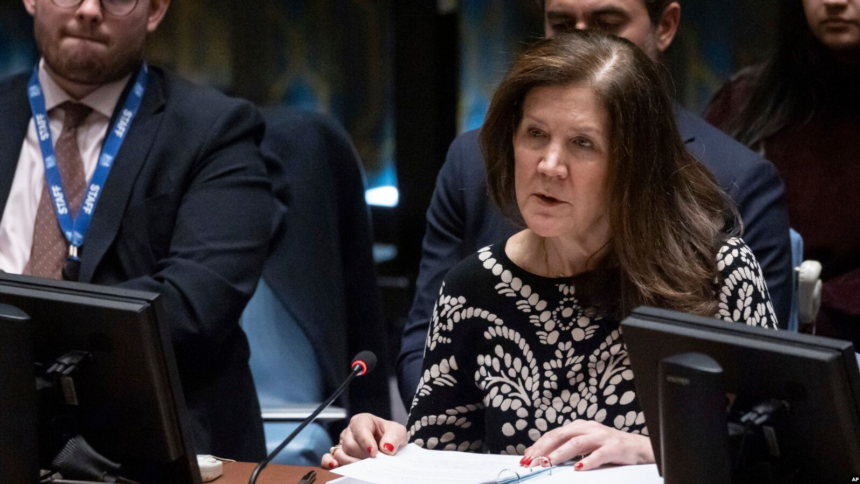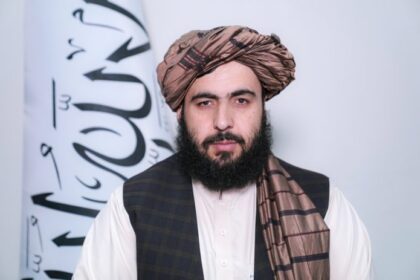RASC News Agency: Dorothy Shea, the United States representative to the United Nations Security Council, announced during a recent session that Washington’s policy toward Afghanistan is undergoing a thorough strategic reassessment, with a narrowed focus on safeguarding U.S. national security interests. According to Shea, current U.S. priorities center on neutralizing transnational terrorist threats and ensuring the release of American citizens unlawfully detained in Afghanistan, particularly under the Taliban regime. More than three years after the Taliban’s abrupt return to power, Afghanistan remains in a state of protracted humanitarian collapse and institutional paralysis, exacerbated by Taliban misgovernance and the systematic dismantling of civil society. Shea emphasized that the international community can no longer tolerate the group’s pattern of hollow pledges and symbolic gestures.
“The time for empty promises has passed,” she stated. “The Taliban must demonstrate through credible, verifiable action that they are willing to uphold their obligations. The world cannot afford to be lulled by rhetoric while the Afghanistani people endure repression.” Shea pointed to the severe deterioration of public freedoms, particularly for Afghanistani women and girls, whose right to education, employment, and participation in public life has been ruthlessly stripped away. The Taliban’s so-called governance, she stressed, continues to erode Afghanistan’s social and economic foundations, and has plunged the country into international isolation.
The U.S. envoy further noted that while the Biden administration remains committed to practical engagement, that engagement is conditional and grounded in real outcomes not political theater. “This administration, like its predecessor, is guided by a policy of realism. We will measure progress by what the Taliban do, not by what they claim.” She warned that Afghanistan’s continued use as a potential safe haven for terrorist groups poses a transnational threat, one that demands collective action from the international community.
“Terrorism respects no borders,” Shea reminded Council members. “Any failure to act decisively will have global repercussions.” Shea also addressed the intensifying humanitarian crisis, stressing that nearly four years after the Taliban’s takeover, millions of Afghanistani citizens remain trapped in extreme poverty, joblessness, and despair. These conditions, she argued, are not merely the consequence of geopolitical upheaval, but the direct result of Taliban policies that prioritize ideological rigidity over national recovery. “Afghanistan’s collapse is not accidental,” she said. “It is the predictable outcome of a regime that governs by exclusion, silences dissent, and punishes its own people under the pretext of religious authority.”
In her closing remarks, Shea reaffirmed that sustainable change in Afghanistan must be driven from within, but insisted that any such transformation will remain elusive as long as the Taliban continue to defy international norms and human rights frameworks. “If the Taliban truly seek legitimacy, they must prove it not with words, but with actions. They must engage in meaningful dialogue, respect fundamental freedoms, and demonstrate that they are willing to build an inclusive and stable future. Until then, the world will not, and must not, remain silent.”






